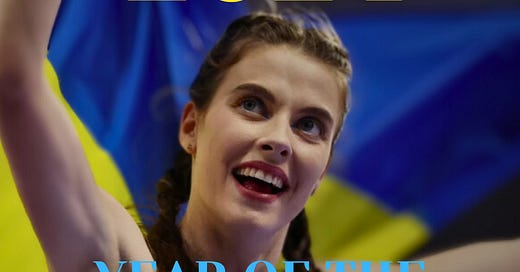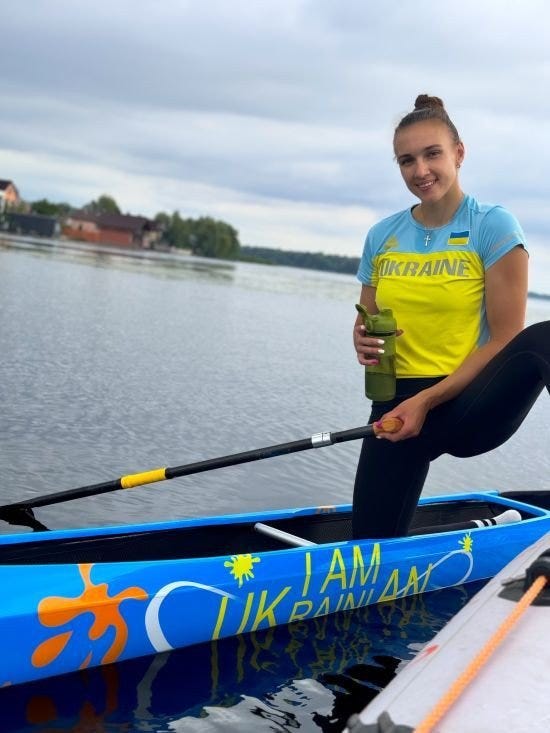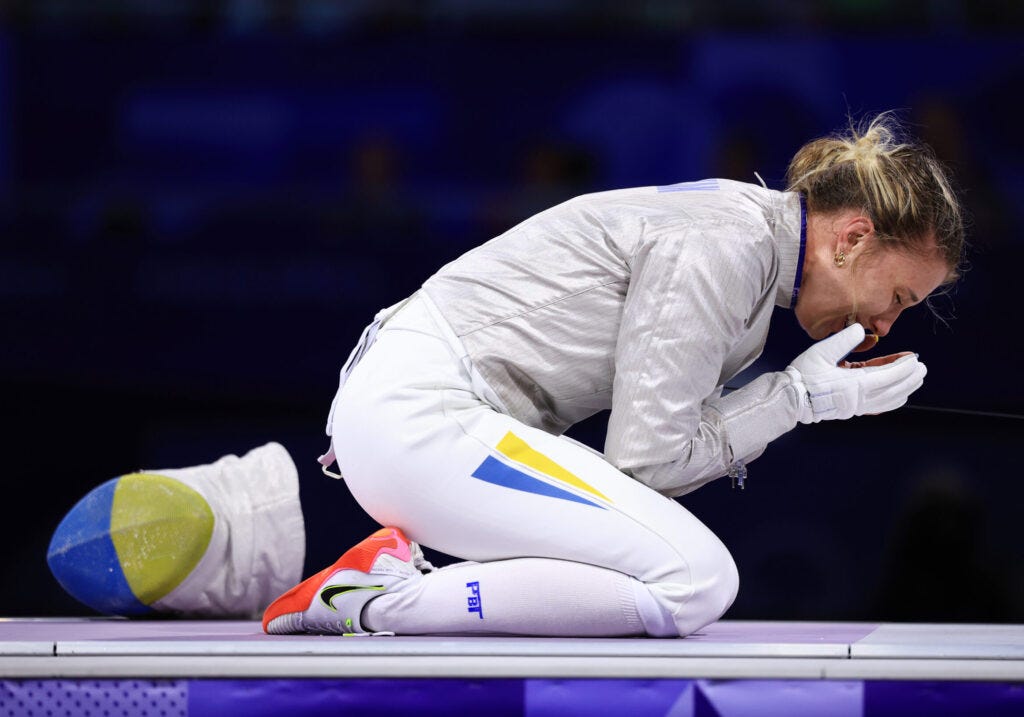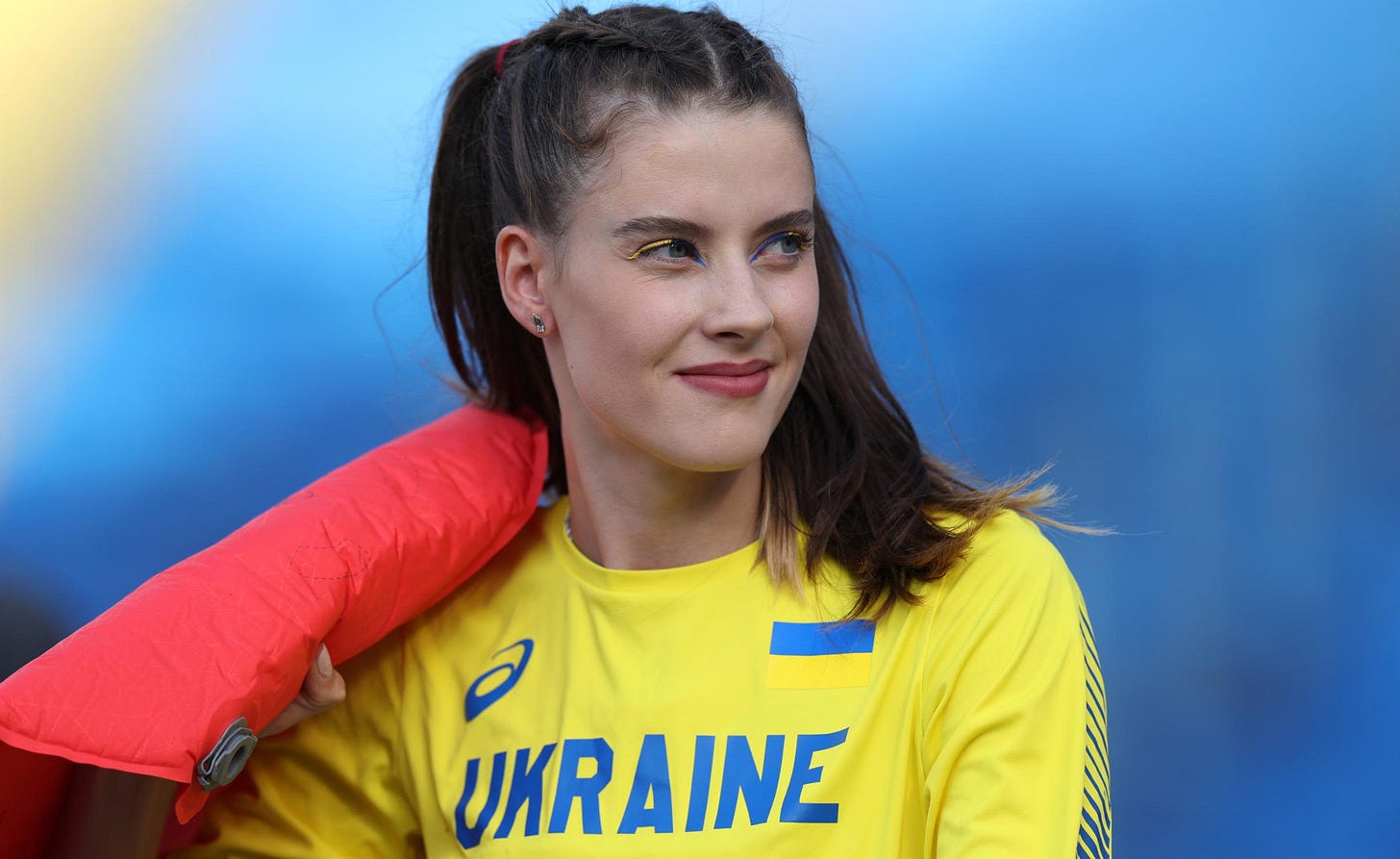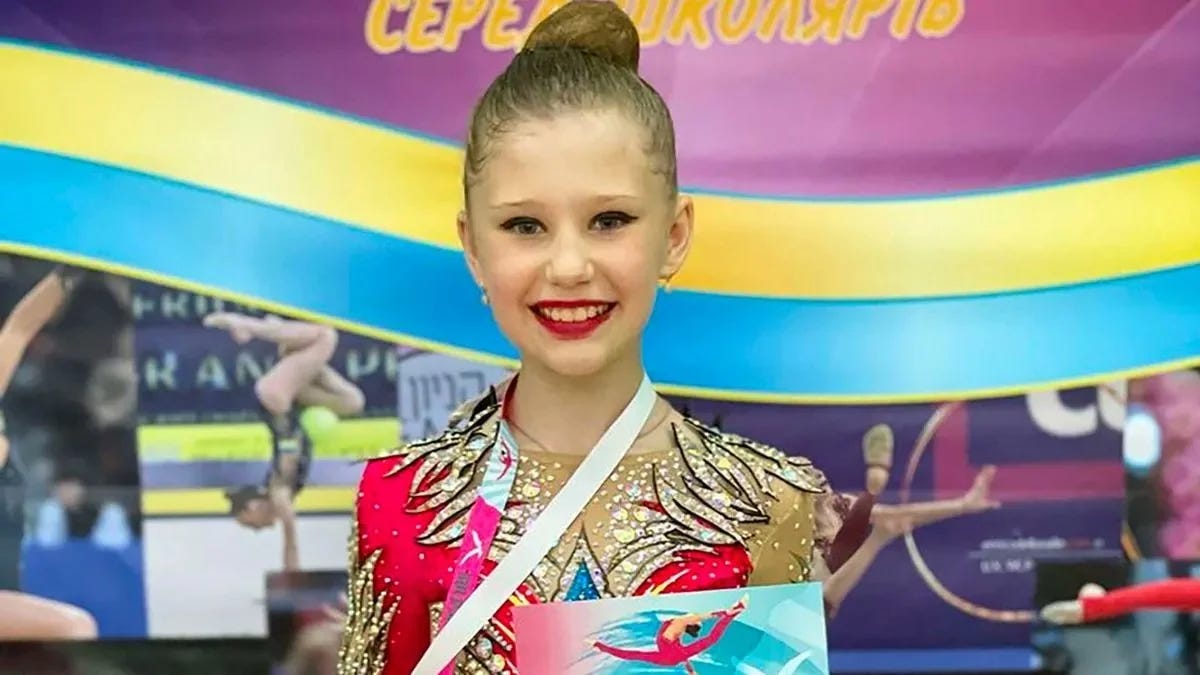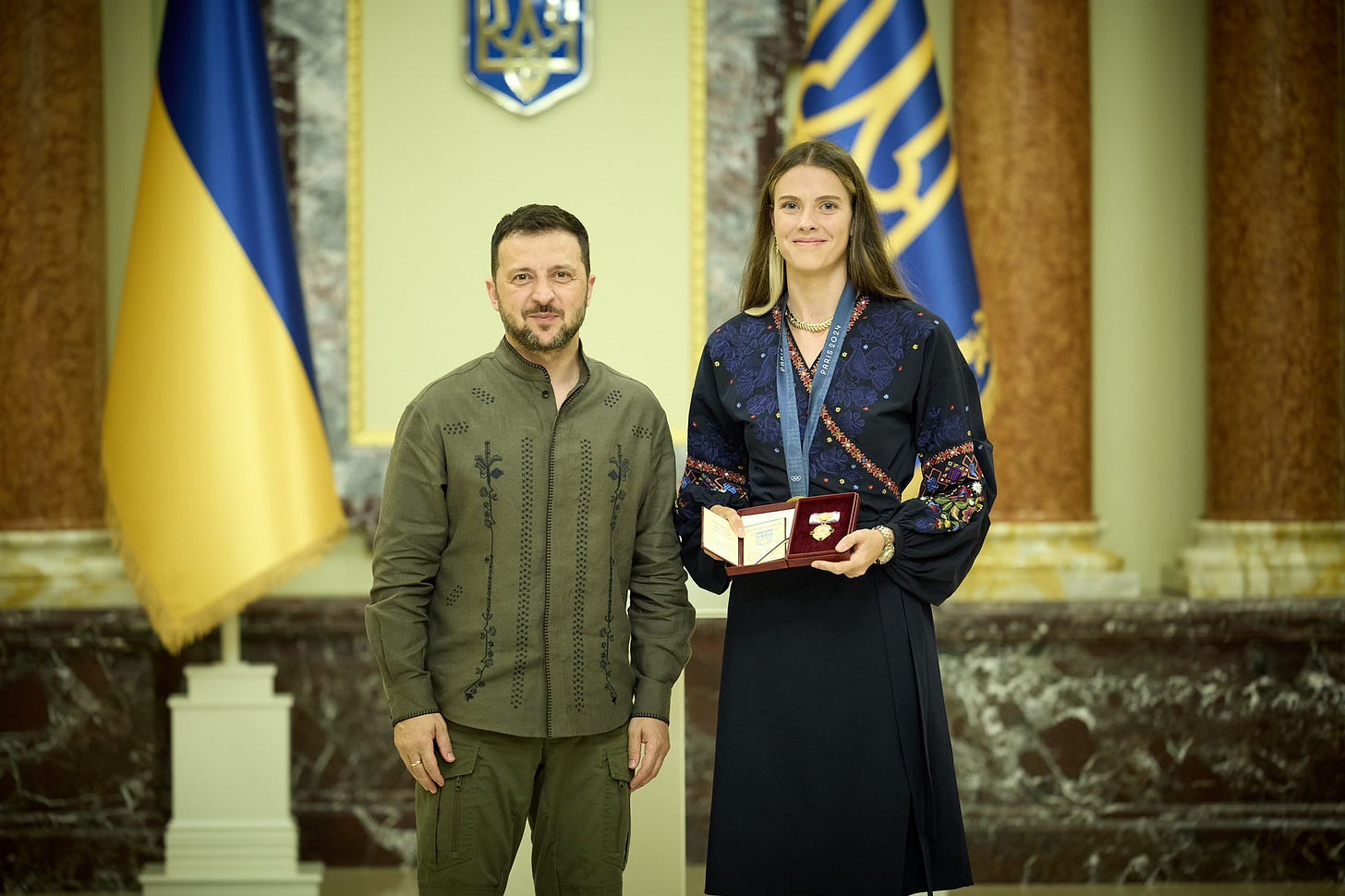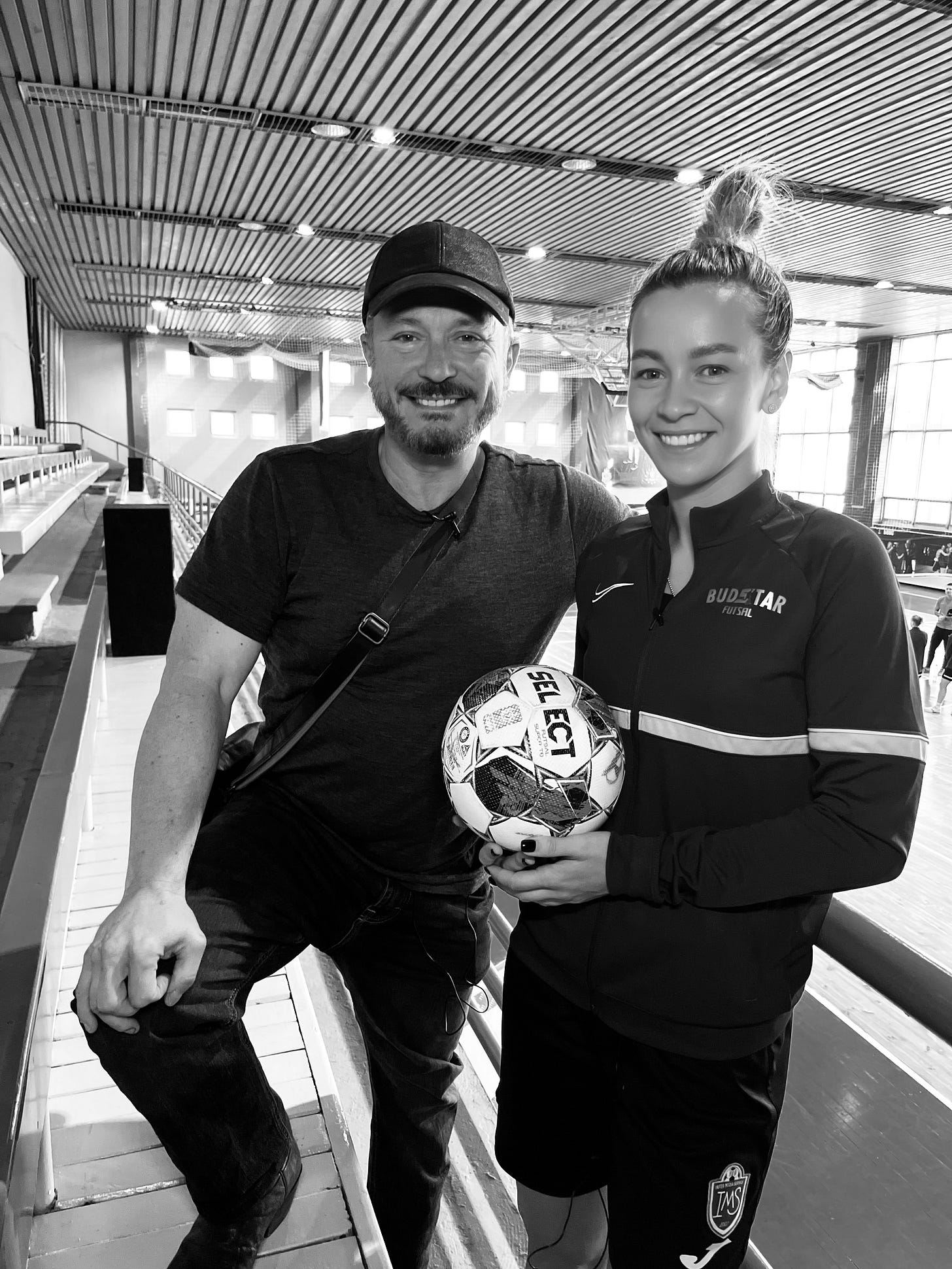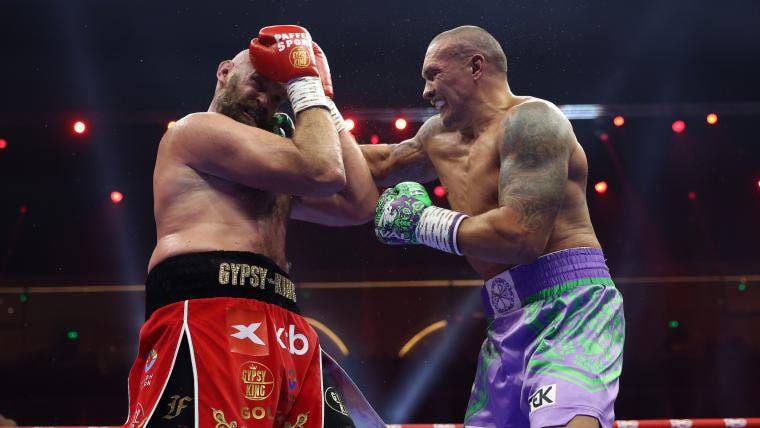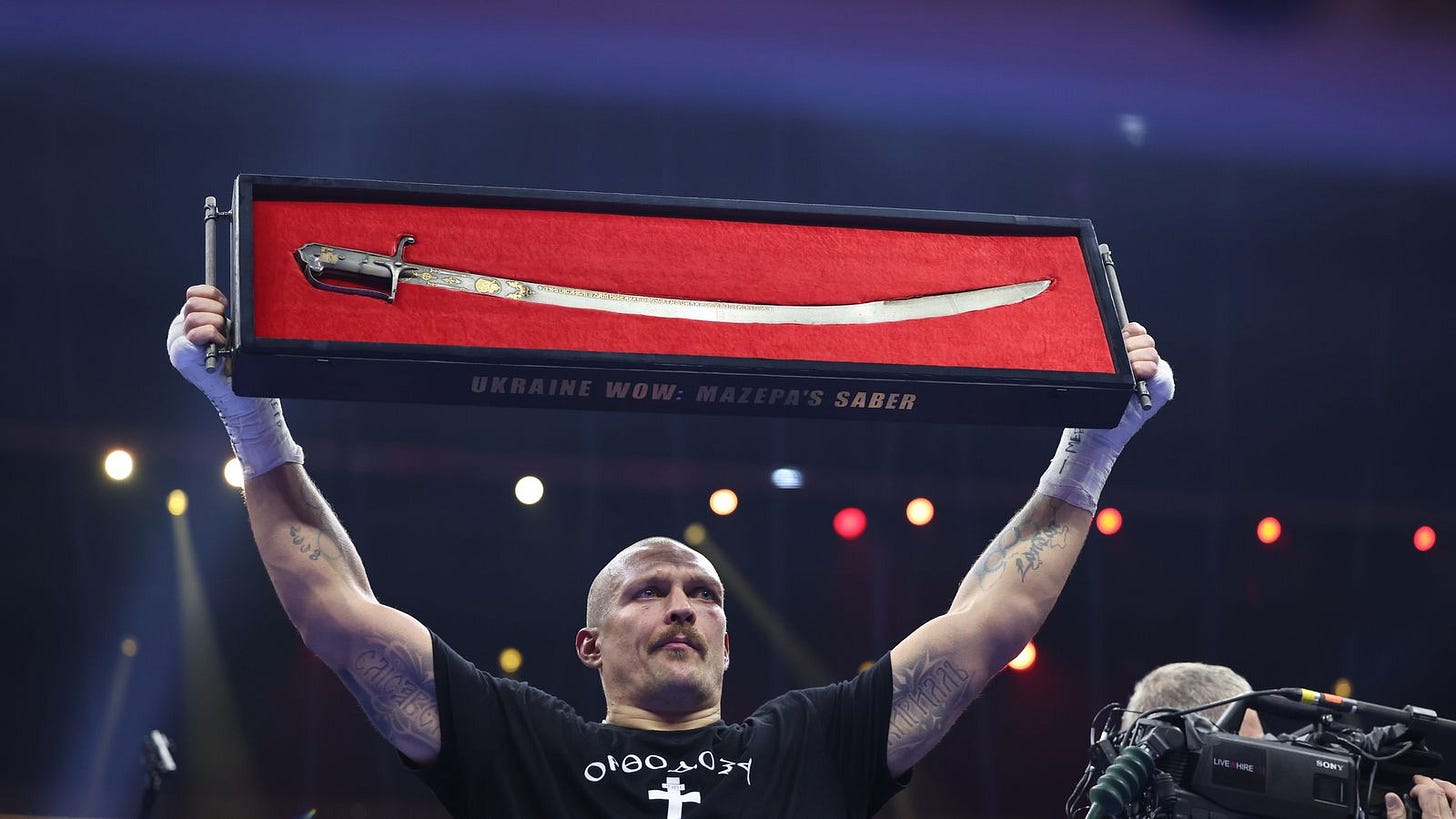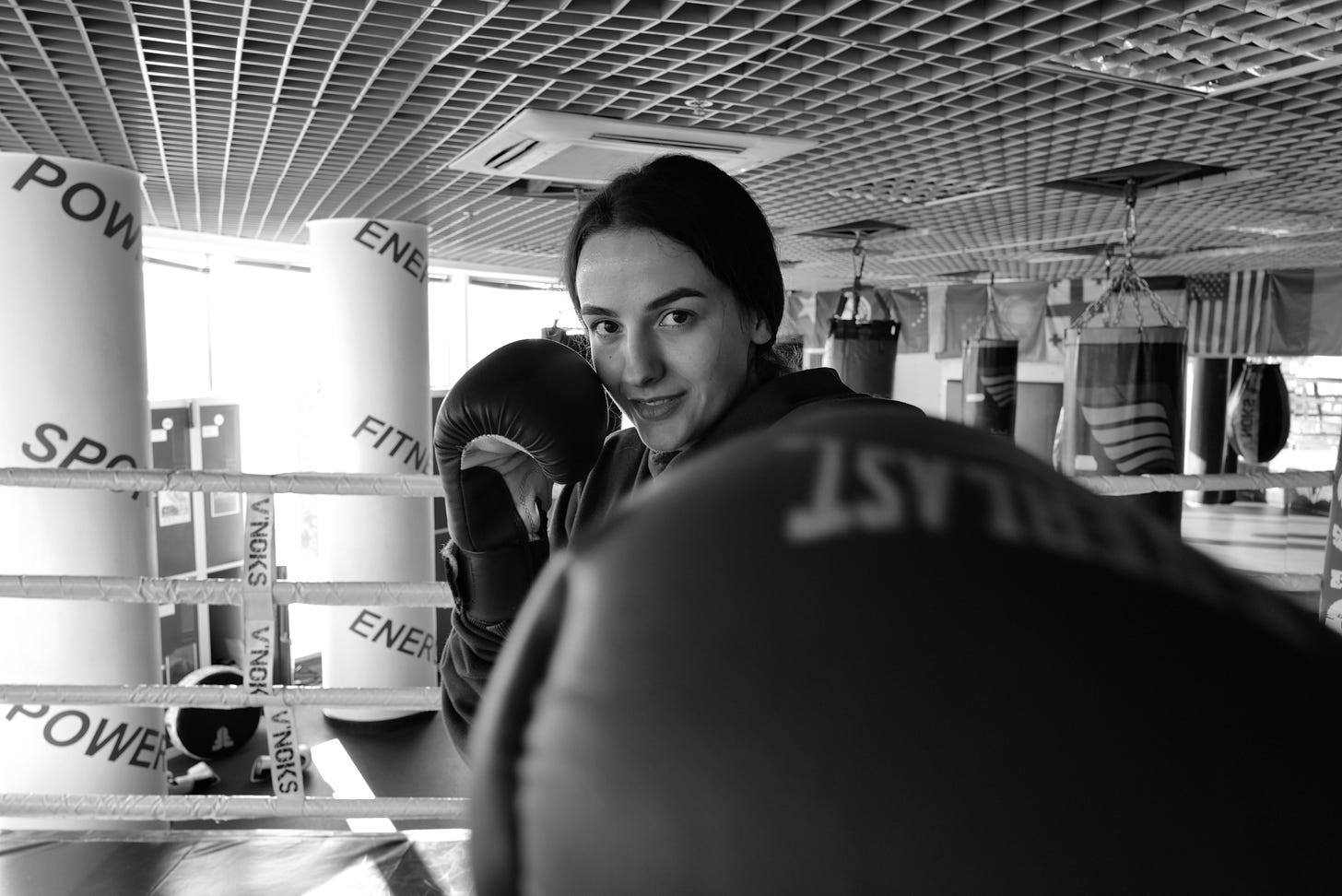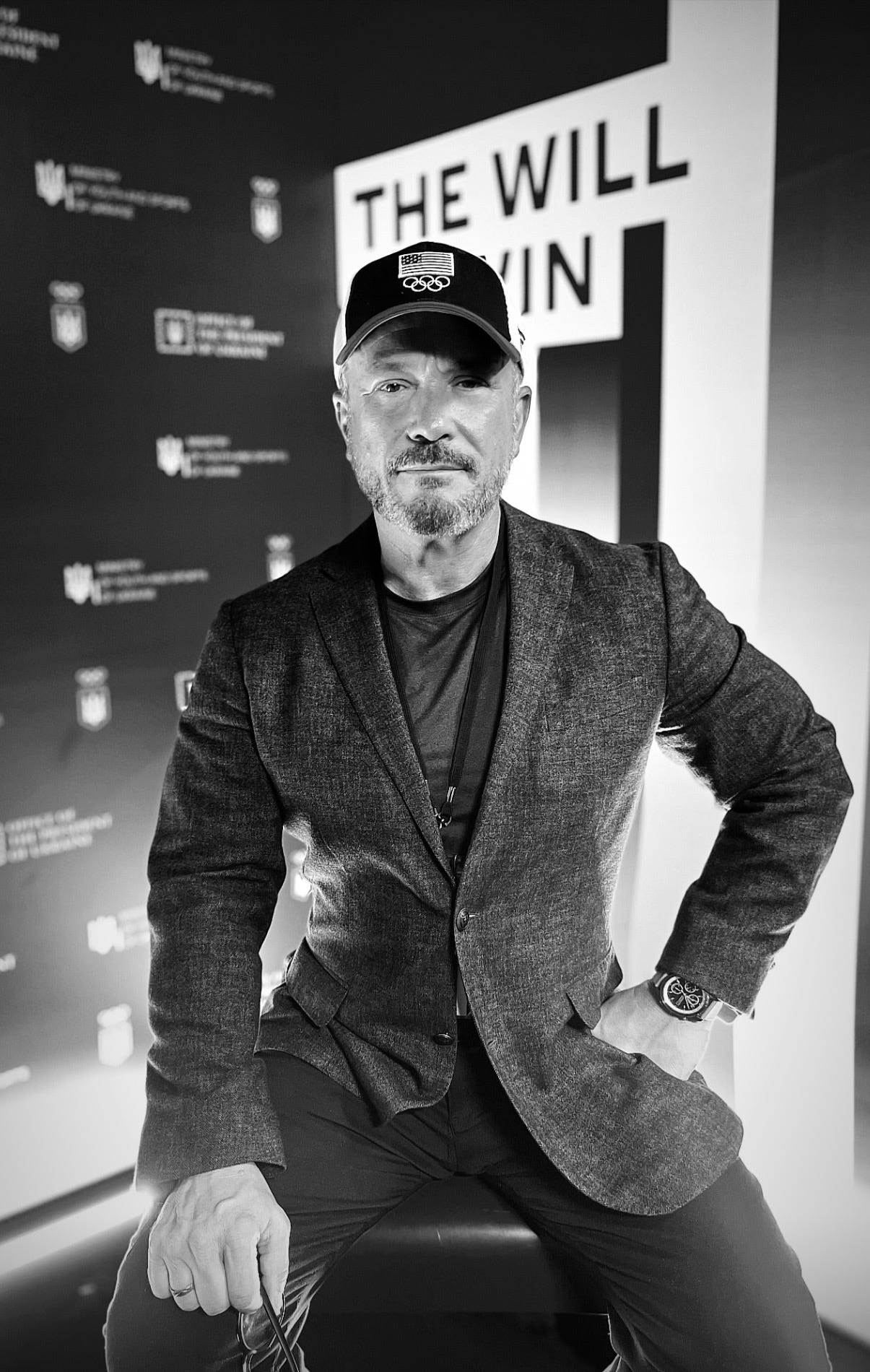2024 - Year of the Ukrainian Athlete
Defiance, perseverance, and victory after victory defined a year where Ukraine's elite athletes rose from literal ashes, reminding the world that they will not yield to tyrants.
It was the athletic underdog story of the year: Competitors from the embattled nation of Ukraine rising from literal ashes to the summit of international competition.
Nearly five hundred of their fellow athletes were murdered by Russians. Their gyms were destroyed. Their training disrupted by incoming missiles. Their daily lives colored by the trauma of war. But they came and they conquered.
And this year, they won big.
World records. Olympic golds. International titles.
Pound for pound, Ukrainian athletes delivered an uncommon competitive punch in 2024.
Consider that this year Ukraine fielded the smallest Olympic team since independence from the Soviet Union in 1991. That did not stop them from achieving disproportionately high performance outcomes. For example, despite fielding 63 fewer athletes at the 2024 Paris Olympics than in Brazil in 2016, Ukraine managed a higher medal count - this in the midst of full scale invasion.
The victories were stunning, but the character of the Ukrainian athletes more so.
Since 2023, I have been interviewing elite Ukrainian athletes - Olympic medalists and champions from diverse disciplines — track and field, boxing, futsal, beach soccer, canoe, table tennis, and more. From Kyiv to the Paris 2024 Olympics, I have listened to them tell their stories, sometimes with laughter, other times tears, but often with a simmering intensity reserved for those who live with the specter of death.
One thing seems clear - Much of the world has lost what these Ukrainian athletes have found: Higher purpose. Ferocious solidarity. Holy defiance.
These athletes speak as one people. Fight for one cause. When one wins, they all win.
They view every medal as a stake in the heart of evil. Every victory as a moment to honor suffering mothers, frontline soldiers, and fellow athletes.
You heard it in the triumphs of Yaroslava Mahuchikh, Oleksandr Usyk, Olga Kharlan, Liudmyla Luzan, Anastasiia Rybachok, Zhan Vensanovych Beleniuk, Anastasia Klipochenko, and every Ukrainian champion given a microphone in 2024 after a victory.
Here’s my snapshot of the “2024: Year of the Ukrainian Athlete” told through the stories of five of these athletes.
August 8, 2024 - Paris 2024 Olympics
I’m standing meters from the river of Vaires-sur-Marne, interviewing the great Ukrainian sprint canoeist Anastasiia Rybachok.
She is everything you expect of an Olympian - laser focused, mission-driven, the physical embodiment of a decade of intense training.
She is also a silver medalist from the 2020 Tokyo Olympics, a wife, a mother, and a Ukrainian patriot.
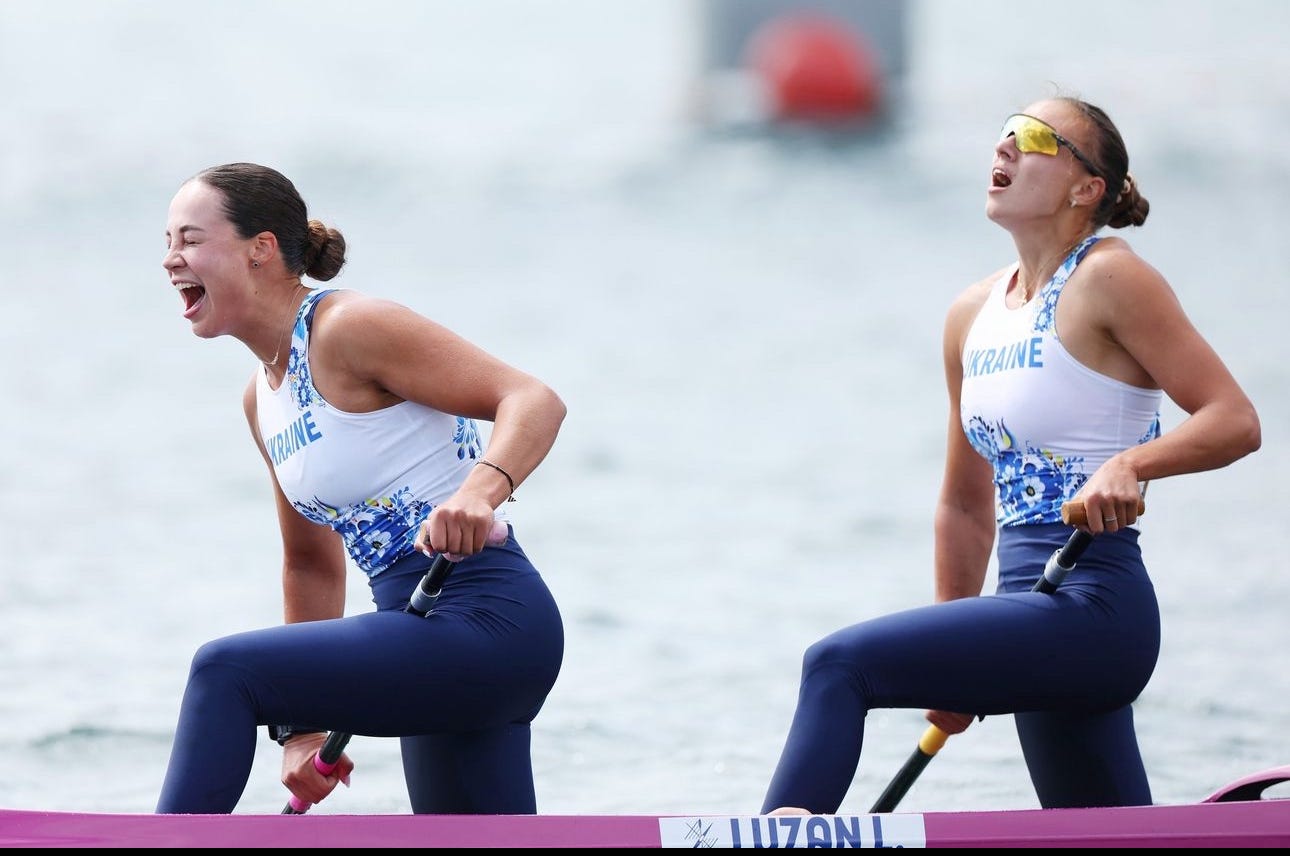
In ninety minutes, she will be competing for Ukraine in a qualifying heat for Women’s canoe sprint at the 2024 Paris Olympics. Just meters away she will board her craft, secure her place in the finals, and ultimately take Ukraine to a medal win.
Earlier that same week the International Olympics Committee (IOC) banned Anastasiia’s canoe from competition. They said it was political propaganda.
Her crime was painting “I Am Ukrainian" on her craft.
I asked her about it:
“The IOC objected to Ukraine painted on your canoe. How did that make you feel?”
“It’s Ukrainian. I am Ukrainian. It’s normal.”
Next she stares directly into my camera, sputters out a message in Ukrainian to fellow patriots around the world, ending with an enthusiastic “Slava Ukraini.”
Like every Ukrainian athlete on an international stage, Anastasiia wants the world to know that her nation is fighting for freedom. Every Olympic medal is a message to friend and foe alike: Ukraine will not go quietly into the night.
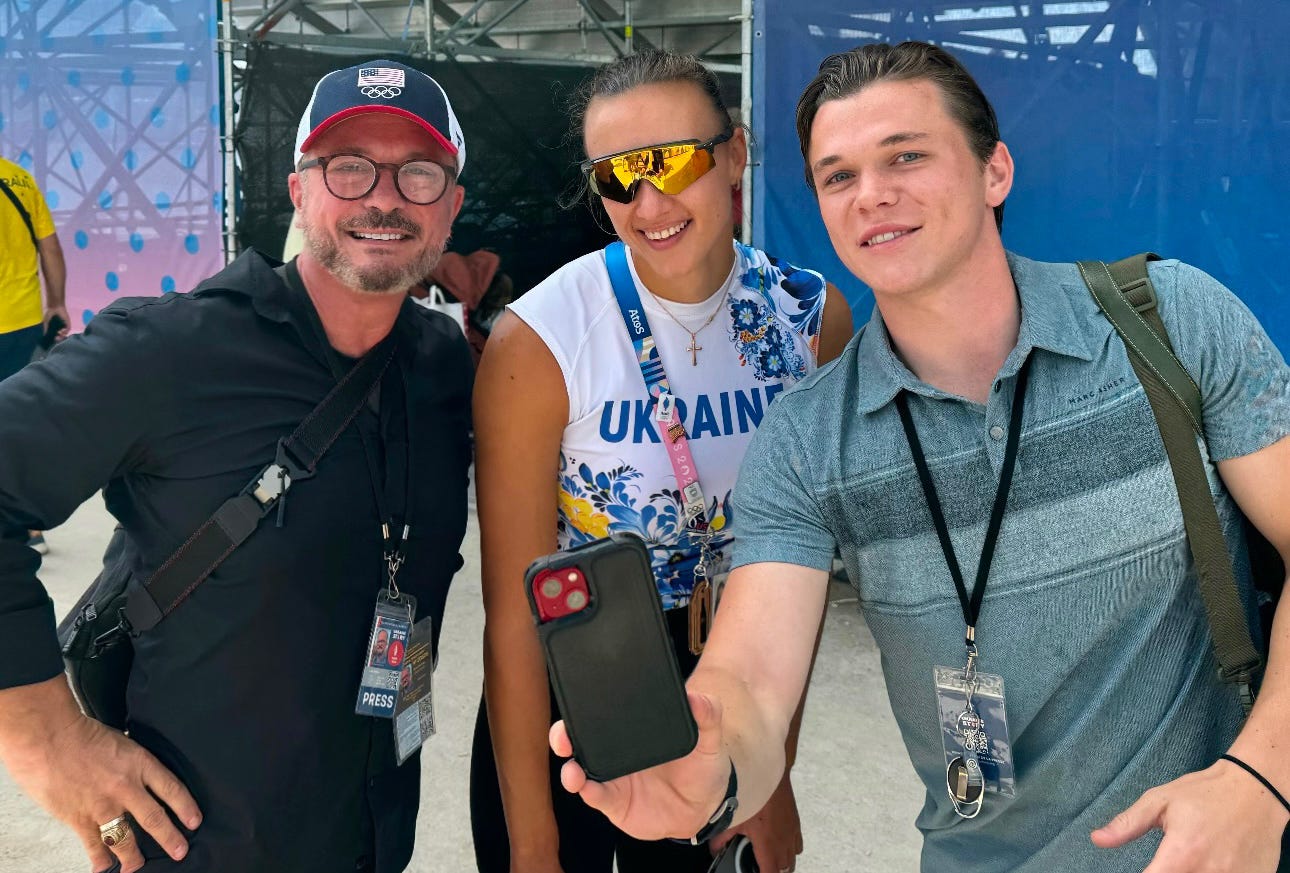
Olga Kharlan - The sabre wielding Cossack
A week before my interview with Ribochek, Ukrainian fencer Olga Kharlan turned her 2024 Olympic bronze sabre win into a golden platform for Ukraine.
She spoke to the Press with deafening clarity:
"My medal is a message to the world that Ukraine never gives up. It's [the bronze medal] for Ukrainians, for our defenders, our athletes who couldn't come, because they were murdered by Russia… We won't forget the 487 and we won't forgive.”
Kharlan is a force of nature. She is the most decorated Olympian in the history of Ukraine. Four time she won women’s world sabre champion and has been ranked #1 in the world for five seasons.
The war is always present for Kharlan who personally lost teammates in the conflict. She speaks of her worry for the lives of her mom and dad back in Mykolaiv, whom she describes as embodying the "Ukrainian soul and spirit."
In 2023, Kharlan was almost denied access to the Olympics after winning an international championship. She offered to touch sabres, but refused to shake hands with a Russian she defeated. The Russian sat down on the track, filed a complaint and refused to leave for 45 minutes until Kharlan received a black card stripping her of the win and threatening her Olympic bid. The International Olympic Committee stepped in to allow Kharlan a direct spot at the Paris 2024 games.
Four days after winning her bronze, the crowd was screaming “Olga, Olga,Olga,” as Kharlan danced her way to the Olympic platform draped in the Ukrainian flag having secured gold for women’s team sabre with the winning touch.
It was Ukraine’s first gold of the Olympics and it could not have been sweeter.
“One year ago, I was almost done with fencing because I was disqualified….This is the story that has a very happy end. I would like to say thank you to everyone who made it happen. And believe, work, never give up — like Ukraine.”
Back in Kyiv, an ecstatic President Zelensky declared, “We cheer for our athletes and support them as a nation. Ukraine knows how to inspire both at the Olympic Games and times like these!”
Yaraslava Mihuchik - “World Athlete of the Year” who dreams of butterflies and fights for freedom.
August 5, 2024 - Ukraine House, Paris.
I’ve been standing for an hour, mic in hand, next to the newly minted Olympic gold medalist and world record holding high jumper, Yaraslava Mihuchik.
A half a dozen of us with the Press are crowded with her into a room the size of a large walk-in closet at Ukraine House, the official Olympic welcome center for the war-torn nation.
Where Kharlan speaks with a Cossack ferocity ready to impale invaders upon the tip of her sabre, Yaraslava delivers the same message with a softer touch. (Think clear-headed, broken-hearted princess advocating for her people.)
Today, Yaraslava is holding court with us. She presents with the gentility expected of royalty. The twenty-two year old from Dnipro must be exhausted, but she treats us with kindness, making sure every question is answered. She discusses coffee in Dnipro, butterflies in her dreams, and happiness for her fellow Ukrainian Olympians who also medaled.
Less than twenty four hours earlier, she won the first individual gold for Ukraine in Paris. The crowd at Stade de France gave her and fellow Ukrainian medalists Iryna Gerashchenko (high jump) and Mykhaylo Kokhan (hammer throw) a standing ovation as they rounded the track together draped in the flag of Ukraine.
But every Ukrainian win is a reminder of loss. So Yaraslava dedicates her Olympic gold medal to Ukrainian athletes slain by Russians:
"In my country the Russians killed people and almost 500 sportsmen died in this war and they will never compete and celebrate and feel this atmosphere. So I'm happy with the gold medal and it's really for all of them.”
Since the beginning of the full scale invasion, Yaraslava has been front and center advocating for the exclusion of Russian athletes from Olympic and international competition. She may be the single largest professional athlete donor in the world to Ukrainian causes associated with the war, including military combat units, hospitals, animal rescues, and Azov's Angels Patronage Service.
Like many of Ukraine’s elite athletes, she has wrestled with the propriety of professional competition while others are sacrificing their lives on the front line of battle. She told one reporter:
“And I thought about why I should go to the Worlds and that I would jump. Then I understood that this is my work field. This is my sector. I have to defend my country in my field. I realised that people doing their job help their country with all they can do in each of their fields.”
Following Paris, Yarsalava went on to be recognized as the greatest female athlete on Earth in 2024, claiming the title European Athlete of the Year (women) and World Athlete of the Year (women).
Anastasia Klipachenko - “We will not give up! Never give up.”
I first interviewed national champion beach soccer player Anastasia Klipachenko in Kyiv. Then again at the 2024 Paris Olympics.
She is a gem. Intense, kind hearted, self-sacrificing, crystal clear. At 30 she has accomplished the Ukrainian women’s trifecta of being a model, a star athlete and coach, and the co-founder of a Christian sports organization Champions Way designed to elevate Ukrainian young women in the midst of war.
Like every elite Ukrainian athlete I have met, war has redefined her role. Anastasia is a fighter who views herself first as a Christian, second as a patriot, third as a competitor. She talks like a young Churchill:
“We are not looking for money or status for individual. We are looking for unity to say about Ukraine, how we are strong inside our country. And we will not fall down. Never. And we will not give up! Never give up.”
Ukraine’s athletes are singular on the global stage for what they endure. Not one is free from staggering loss and trauma inflicted by the armies of Vladimir Putin. It shapes their approach to training and competition.
Anastasia explained to us that in the days leading up to competition it is impossible to maintain focus without deleting news and social media.
It’s a theme echoed by many Ukrainian athletes including Kharlan who suffers from anxiety over her family's safety. "Sometimes, during the day I just don't look at my phone…It's like a lottery. Unfortunately, we get used to it."
Oleksandyr Usyk - Crimea Belongs to Ukraine
On Friday, December 20, the nation of Ukraine won the world heavy weight boxing championship. Yes, Oleksandr Usyk’s brilliant defeat of Tyson Fury secured his title as the undisputed heavyweight champion of the world. But Ukraine was the real winner.
Usyk made sure the world got that message.
As he arrived at the stadium to the shouts of “Slava Ukraini,” he stopped decidedly, turned to the crowd and shouted, “Heroam Slava” (Glory to the heroes).
Hours before the fight, Usyk was video chatting with Ukraine’s President Zelensky about the importance of this fight for his countrymen.
Usyk is Crimean. He came to the match with a purple track suit embroidered with 25 chestnut leaves, a reference to Ukraine's 25 regions each of which belongs to Ukraine, including Crimea. Minutes after his win, he dedicated the victory to the mothers of Ukraine.
It was a fitting testimony to hundreds of thousands of women raising their children alone while their husbands are off at war or tragically killed in combat. In some cases, the mothers themselves are at war, a reminder of brutal realities of a nation fighting for its very breath from a rapacious invader devoid of conscience.
Usyk’s victory against Fury, a 6’9” colossus, was a reminder that when it comes to the Ukrainian will for victory, spirit trumps size.
In his penultimate statement of Ukrainian prowess, Usyk reminded the world that Russians will be repelled from the homeland. He raised high over his head the sabre of 17th century hero Ivan Mazepa who three centuries before fought Russians to free Ukraine.
“If a person is bigger than me, it doesn't mean they're stronger than me. If they have longer arms, it doesn't mean that it will be an advantage.” Oleksandr Usyk
Earlier this week, I spoke with Ukrainian women’s boxer, Marina Karlash. She summarized the significance of Usyk’s win. Her words have broader application to all 2024 champions from Ukraine.
Usyk’s victory carries significant symbolic meaning for all Ukrainians. It goes far beyond the realm of sports. It has become a symbol of unity, resilience, and belief in triumph even in the most challenging circumstances. He embodies the resilience of Ukrainians. His victories remind us that through hard work, discipline, and faith in oneself, any obstacles can be overcome. Marina Karlash
The Rise of the Trident
2024 was the year that the once feared athletic dominance of Russia burned in flames. Constant doping scandals of the past and the inextricable link between Muscovite athletes and state propaganda advancing criminal narratives forced Russia from their position of prominence in international competitions. They became a pariah nation.
Ukraine athletes, on the other hand, merged as the victorious underdogs of 2024. Not merely because of their victories, but their character and their message to the world spoken in unity - We will never surrender to Russian tyrants. We are Ukrainian. Cossack blood runs in our veins. Beat us down, we rise again. You can take your cynicism and shove it. Every punch, jump, hurdle, and lap of our athletes in international competition is testimony we fight for victory and will not be defeated.
DW Phillips is a filmmaker, writer and attorney who directs for Ukraine Story, a foundation for journalism and documentary reporting. He covered the stories of Ukrainian athletes at the Paris 2024 Olympics. His great grandfather escaped Russians hunting him down in Lviv to build a new life in America.

